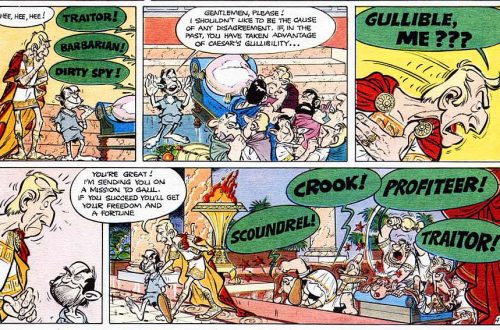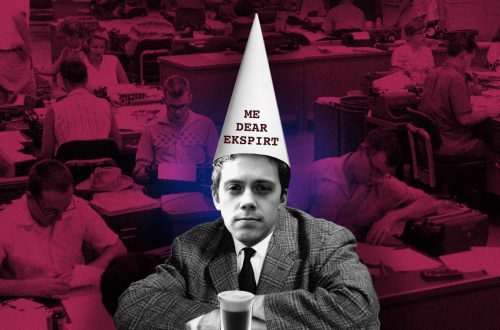Kettle’s piece (see post below) prompted some thoughts about the broader nature of debate in Britain.
In the media marketplace and the increasingly blurred line between politics and the media, there is a strong incentive to take a clear and strident position on issues, in a manner which is often over-simplistic and which does nothing to help the collective search for answers to often complex issues.
Terms such as ‘hawks’ and ‘doves’ or ‘rebels’ and ‘loyalists’ are emotive descriptions which disguise the often subtle and complex distinctions that exist. They reduce debate to a team sport with people standing on either side of the half-way line.
So the BBC is either a Great British institution to be defended from its enemies or it is a nest of biased left-wing vipers and liberal gravy trainers. The possibility that it is, like most organisations, a complex combination of external and internal contradictions, staffed by flawed human beings who are subject to a series of pressures and influences, might be considered over dinner but it doesn’t make either great copy for writers or catchy soundbites for politicians.
And how many times in the past year have you read articles that contain brief definitions of what America is? The ‘world’s policeman’, the ‘new empire’, the ‘greatest force for democracy and freedom’, etc, etc.
But again, after some consideration, surely most of us would agree that America is lots of things – some positive, some negative and that the country, contains contradictions and the people who make it up are of course in a process of change. It would take a good length book to try and even begin to describe ‘What America is’, yet the media and politicians are content to sum it up in a paragraph.
Newspaper columnists, for example, are paid to provide talking points but to get noticed they often choose to provoke rather than stimulate discussion.
Lampooning their opponents, often over-simplifying their positions, setting up straw dolls, seems to be the method used by far too many columnists and by no means only in the tabloids.
What’s worse is this is not even done with any finesse. The agenda, the partisan positions, are so blatant, so obvious and in the case of many columnists, so pathetically predictable that you have to filter through the loaded terms, the scaremongering and the cliche to find the odd nugget of useful analysis or insight.
Pick your issue – crime, drugs, immigration, the European Union, never mind Iraq, we are urged to pick sides, to take up the slogans or the prejudices of those who frame the debate.
Take Hutton – read the commentary and take your choice – Whitewash or a deserved kicking for the BBC? Am I alone in answering “neither” or is it perhaps “both”?
It was a judicial inquiry for heaven’s sake, yet we are expected to line up behind one banner or the other. I would never make a newspaper columnist.
I wasn’t happy with some of the BBC’s coverage of the Iraq war but I don’t share the right-wing stereotype of the corporation. What does that make me?
I supported liberating the Iraqi people with armed force but I am highly sceptical of the WMD claims made by the government and the intelligence services. What does that make me? A ‘sceptical hawk’ or a ‘tough dove’?
Does all of this make me that most mocked caricature of all – the fence sitter?
The danger is not though that Britain’s oppressed fence-sitters continue to be under-represented in the media.
The point-scoring sport that so much debate in Britain has become isn’t even very entertaining, let alone informative or constructive. The real danger is people choose a better entertainment and leave debate and discussion of public affairs in the hands of the professionals of the circus.
(Update: I have a sandwich and browse the blogs and discover this from the increasingly essential SIAW blog.
We used to think that the Situationist Guy Debord’s vision of advanced capitalism as the “society of the spectacle”, in which serious debate and contestation had been replaced by the theatrical performances of “specialists in the seemingly lived”, represented the pardonable exaggerations of a man driven to extremes by alcohol, despair, more alcohol and anger. But perhaps he was more prescient than he’s generally given credit for; and he did, after all, declare that “The critique that goes beyond the spectacle must know how to wait” … He got that right, at least.


